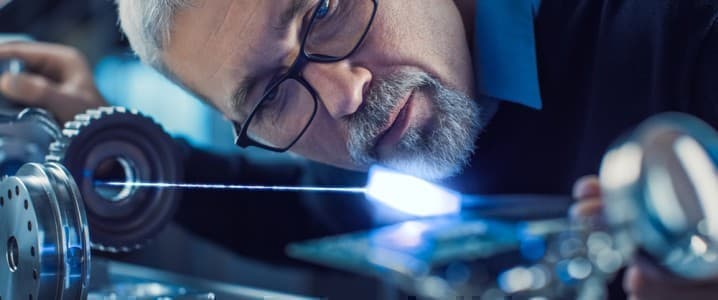University of Liverpool researchers have discovered a solid electrolyte material that rapidly conducts lithium ions. The discovery of new Li ion conductor unlocks a new direction for sustainable batteries. The discovery is discussed in a paper published in the journal Science.
Consisting of non-toxic earth-abundant elements, the new material has high enough lithium ion conductivity to replace the liquid electrolytes in current lithium ion battery technology, improving safety and energy capacity. Such lithium electrolytes are essential components in the rechargeable batteries that power electric vehicles and many electronic devices. The research team have synthesized the material in the laboratory, determined its structure and demonstrated it in a battery cell.
The new material is one of a very small number of solid materials that achieve lithium ion conductivity high enough to replace liquid electrolytes, and operates in a new way because of its structure.
Its discovery was achieved through a collaborative computational and experimental workflow that used AI and physics-based calculations to support decisions made by chemistry experts at the University.
Related: 2 Companies That Could Help Europe Win Its Energy War With Russia
The new material provides a platform for the optimization of chemistry to further enhance the properties of the material itself, and to identify other materials based on the new understanding provided by the study.
Professor Matt Rosseinsky, from the University of Liverpool’s Department of Chemistry, said, “This research demonstrates the design and discovery of a material that is both new and functional. The structure of this material changes previous understanding of what a high-performance solid-state electrolyte looks like. Specifically, solids with many different environments for the mobile ions can perform very well, not just the small number of solids where there is a very narrow range of ionic environments. This dramatically opens up the chemical space available for further discoveries.”
Recent reports and media coverage herald the use of AI tools to find potentially new materials.
In these cases, the AI tools are working independently and thus are likely to recreate what they were trained on in various ways, generating materials that may be very similar to known ones.
Related: How To Profit From Europe’s $800 Billion Energy Crisis
“This discovery research paper shows that AI and computers marshaled by experts can tackle the complex problem of real-world materials discovery, where we seek meaningful differences in composition and structure whose impact on properties is assessed based on understanding,” he added. “Our disruptive design approach offers a new route to discovery of these and other high-performance materials that rely on the fast motion of ions in solids.”
The study undertaken was a combined effort between researchers in University of Liverpool’s Department of Chemistry, Materials Innovation Factory, Leverhulme Research Centre for Functional Materials Design, Stephenson Institute for Renewable Energy, Albert Crewe Centre, and School of Engineering. It was funded by the Engineering and Physical Sciences Research Council (EPSRC), the Leverhulme Trust, and the Faraday Institution.
**
This technology has been a very long time coming. While not fully tested out yet it is a major improvement for lithium ion technology.
Better still is that the press release came out with a mention of some lab info plus a built test cell.
Congratulations to this team!! It looks like a major breakthrough!
By Brian Westenhaus via New Energy and Fuel
More Top Reads From Oilprice.com:
- Azerbaijan Accuses France of Double Standards in South Caucasus Conflict
- Uzbek Insider Takes Helm of $850 Million Gas Project Amid Sanctions
- Claudia Sheinbaum Spearheads Revolutionary Solar Initiative in Mexico City


















